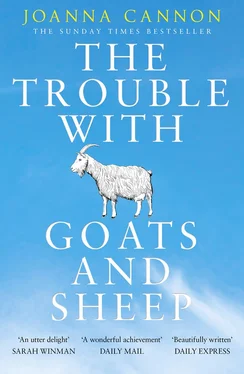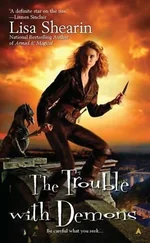‘Do you think he murdered her?’ said Tilly.
‘I expect so,’ I said.
I paused for a moment, before I allowed the latest bulletin to be released. ‘She disappeared without taking any shoes.’
Tilly’s eyes bulged like a haddock. ‘How do you know that?’
‘The woman in the Post Office told my mother.’
‘Your mother doesn’t like the woman in the Post Office.’
‘She does now,’ I said.
Mr Creasy began on another box. With each one, he was becoming more chaotic, scattering the contents at his feet and whispering an uncertain dialogue to himself.
‘He doesn’t look like a murderer,’ said Tilly.
‘What does a murderer look like?’
‘They usually have moustaches,’ she said, ‘and are much fatter.’
The smell of hot tarmac pinched at my nose and I shifted my legs against the warmth of the bricks. There was nowhere to escape the heat. It was there every day when we awoke, persistent and unbroken, and hanging in the air like an unfinished argument. It leaked people’s days on to pavements and patios and, no longer able to contain ourselves within brick and cement, we melted into the outside, bringing our lives along with us. Meals, conversations, discussions were all woken and untethered and allowed outdoors. Even the avenue had changed. Giant fissures opened on yellowed lawns and paths felt soft and unsteady. Things which had been solid and reliable were now pliant and uncertain. Nothing felt sure any more. The bonds which held things together were destroyed by the temperature – this is what my father said – but it felt more sinister than that. It felt as though the whole avenue was shifting and stretching, and trying to escape itself.
A fat housefly danced a figure of eight around Tilly’s face. ‘My mum says Mrs Creasy disappeared because of the heat.’ She brushed the fly away with the back of her hand. ‘My mum says the heat makes people do strange things.’
I watched Mr Creasy. He had run out of boxes and was crouched on the floor of his garage, still and silent, and surrounded by debris from the past.
‘I think it probably does,’ I said.
‘My mum says it needs to rain.’
‘I think she’s probably right.’
I looked at the sky, which sat like an ocean above our heads. It wouldn’t rain for another fifty-six days.
St Anthony’s
27 June 1976
On Sunday, we went to church and asked God to find Mrs Creasy.
My parents didn’t ask, because they were having a lie-in, but Mrs Morton and I sat near the front so God could hear us better.
‘Do you think it will work?’ I whispered to her, as we knelt on the slippery cushions.
‘Well, it won’t do any harm,’ she said.
I didn’t understand much of what the vicar was talking about, but he smiled at me from time to time, and I tried to look sinless and interested. The church smelt of wax and old paper, and gave us shelter from a fat sun. The wooden ribs in the roof arched over the congregation, soaking heat and sweat into cool, dry stone, and I shivered under a cotton dress. We had divided ourselves out in the pews, to make it look full, but I edged towards Mrs Morton and the warmth of her cardigan. She held out her hand and I took it, even though I was too old.
The vicar’s words rumbled on the stone like distant thunder.
‘I will be found by you,’ declared the Lord, ‘and I will bring you back from captivity.’
I watched a bead of sweat make a path down Mrs Morton’s temple. It was easy to drift off in church if you angled yourself properly.
‘I will pursue them with the sword, famine and plague. For they have not listened to my words.’
That caught my attention.
‘Those who love me, I will deliver; I will protect those who know my name and when they call to me, I will answer them.’
I stared at the thick, gold cross on the altar. It reflected every one of us: the pious and the ungodly; the opportunist and the devout. Each of us had our reasons for being there, quiet and expectant, and secreted between the pages of a hymn book. How would God manage to answer us all?
‘Lamb of God,’ said the vicar, ‘who taketh away the sins of the world, have mercy upon us.’
And I wondered if we were asking God to find Mrs Creasy, or just asking Him to forgive her for disappearing in the first place.
*
We walked outside into buttery sunshine. It had spread itself over the graves, bleaching the stones and picking out the names of the dead. I watched it creep up the walls of the church until it reached the stained-glass windows, where it threw splinters of scarlet and purple into a cloudless sky. Mrs Morton and her hand had been absorbed by a clutch of efficient women in hats, and so I wandered around the churchyard in careful, horizontal lines, in case anyone was to be accidentally stepped upon.
I liked the feel of the ground beneath my shoes. It seemed safe and experienced, as though all the bones that were buried there had made wisdom grow in the soil. I walked past Ernests and Mauds and Mabels, now beloved and remembered only by the dandelions which grew across their names, until a neat gravel path brought me to the chancel. The graves here were so old, lichen had eaten into who they used to be, and rows of forgotten people stared back at me from headstones that stooped and stumbled like drunks in the earth.
I sat on newly mown grass, behind a grave which was patterned with whorls of green and white. I knew the women in hats were inclined to be time-consuming and I began to make a daisy chain. I had arrived at my fifth daisy when the chancel door opened and the vicar appeared. The breeze caught the edge of his surplice, and he billowed like sheets on a washing line. I watched him march across the graveyard to retrieve an empty crisp packet, and when he returned to the doorway, he took off his shoe and banged it on the church door to get rid of the grass cuttings.
I didn’t realize something like that would be allowed.
‘Why do people disappear?’ I said to him, from behind the gravestone. He didn’t stop banging, but slowed down and looked over his shoulder.
I realized he couldn’t see me. I stood up.
‘Why do people disappear?’ I said again.
The vicar replaced his shoe and walked over to me. He was taller than he had been in church and very earnest. The lines on his forehead were carved and heavy, as though his face had spent its entire time trying to sort out a really big problem. He didn’t look at me, but stared out over the gravestones instead.
‘Many reasons,’ he said eventually.
It was a rubbish answer. I’d found that answer all by myself and I didn’t even have God to ask.
‘Such as?’
‘They wander from the path. They drift off-course.’ He looked at me and I squinted up at him through the sunshine. ‘They become lost.’
I thought about the Ernests and the Mauds and the Mabels. ‘Or they die,’ I said.
He frowned and repeated my words. ‘Or they die,’ he said.
The vicar smelt exactly the same as the church. Faith had been trapped within the folds of his clothes, and my lungs were filled with the scent of tapestry and candles.
‘How do you stop people from disappearing?’ I said.
‘You help them to find God.’ He shifted his weight and gravel crunched around his shoes. ‘If God exists in a community, no one will be lost.’
I thought about our estate. The unwashed children who spilled from houses and the drunken arguments that tumbled through windows. I couldn’t imagine God spent very much time there at all.
‘How do you find God?’ I said, ‘where is He?’
‘He’s everywhere. Everywhere.’ He waved his arms around to show me. ‘You just have to look.’
Читать дальше












